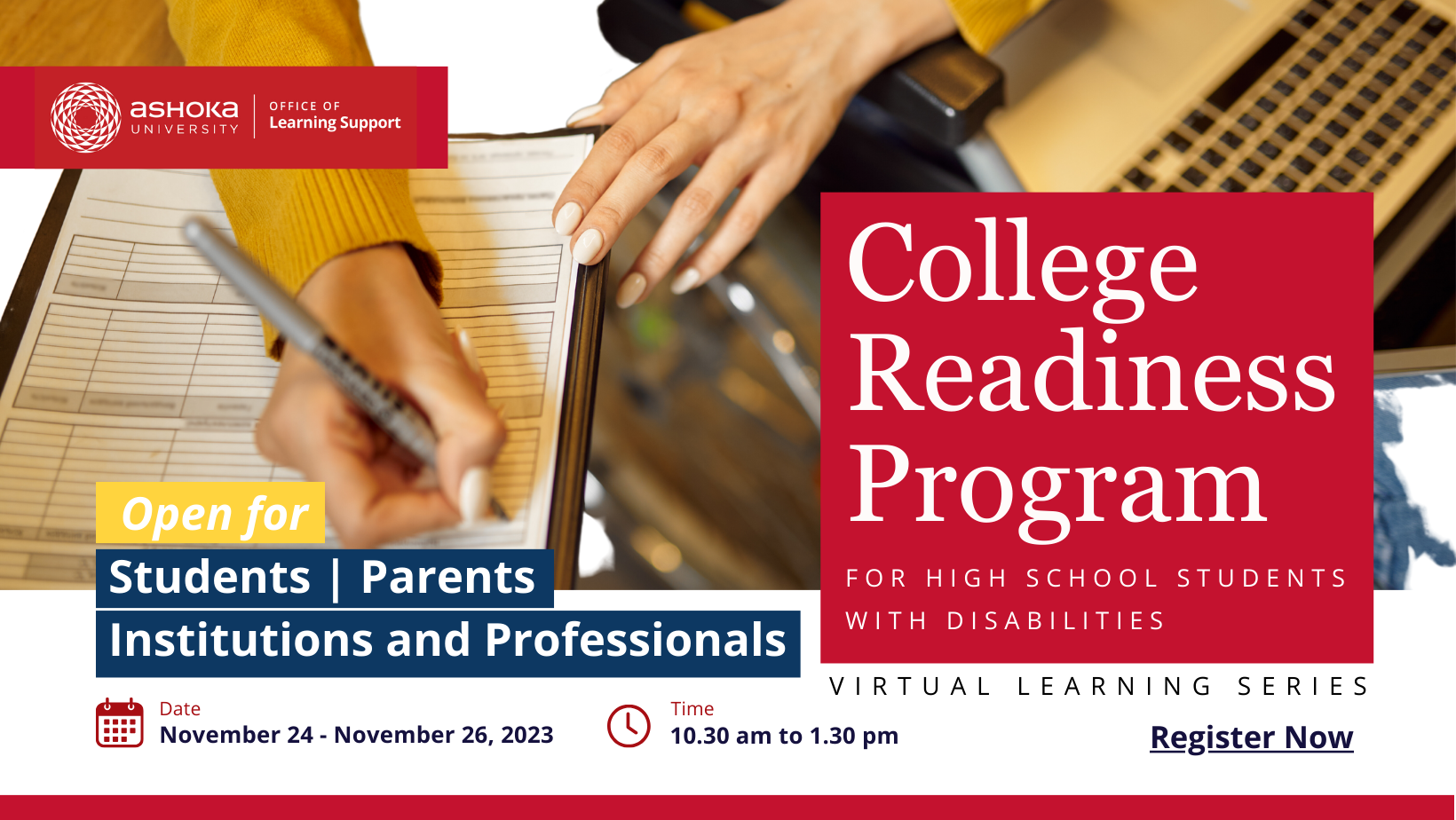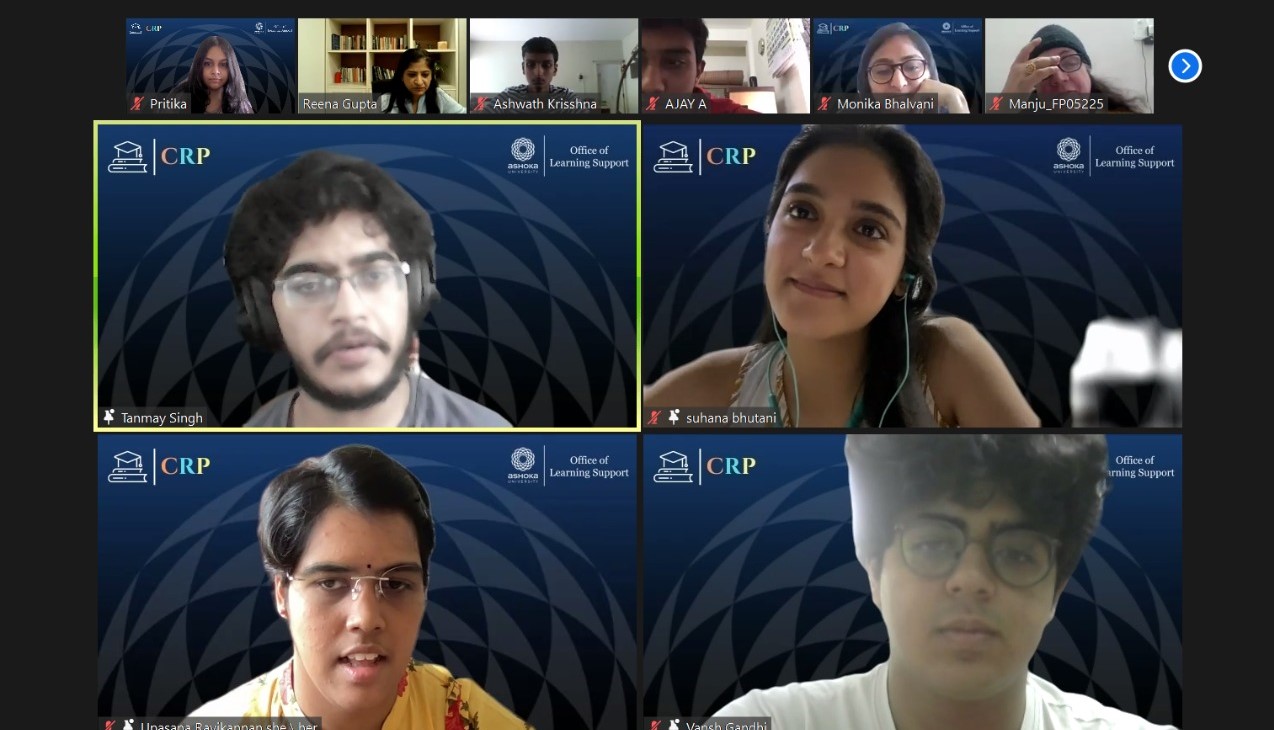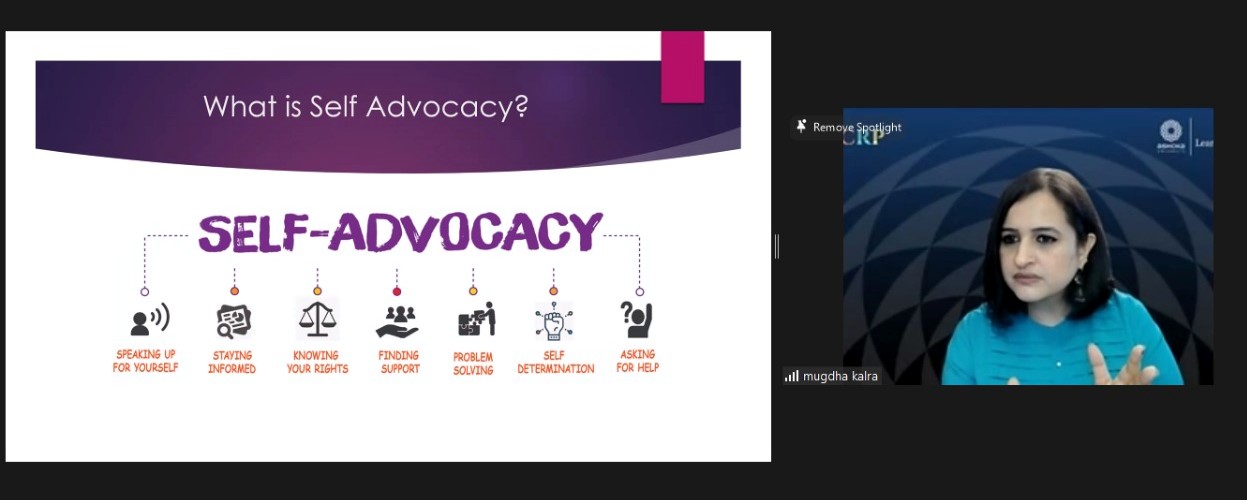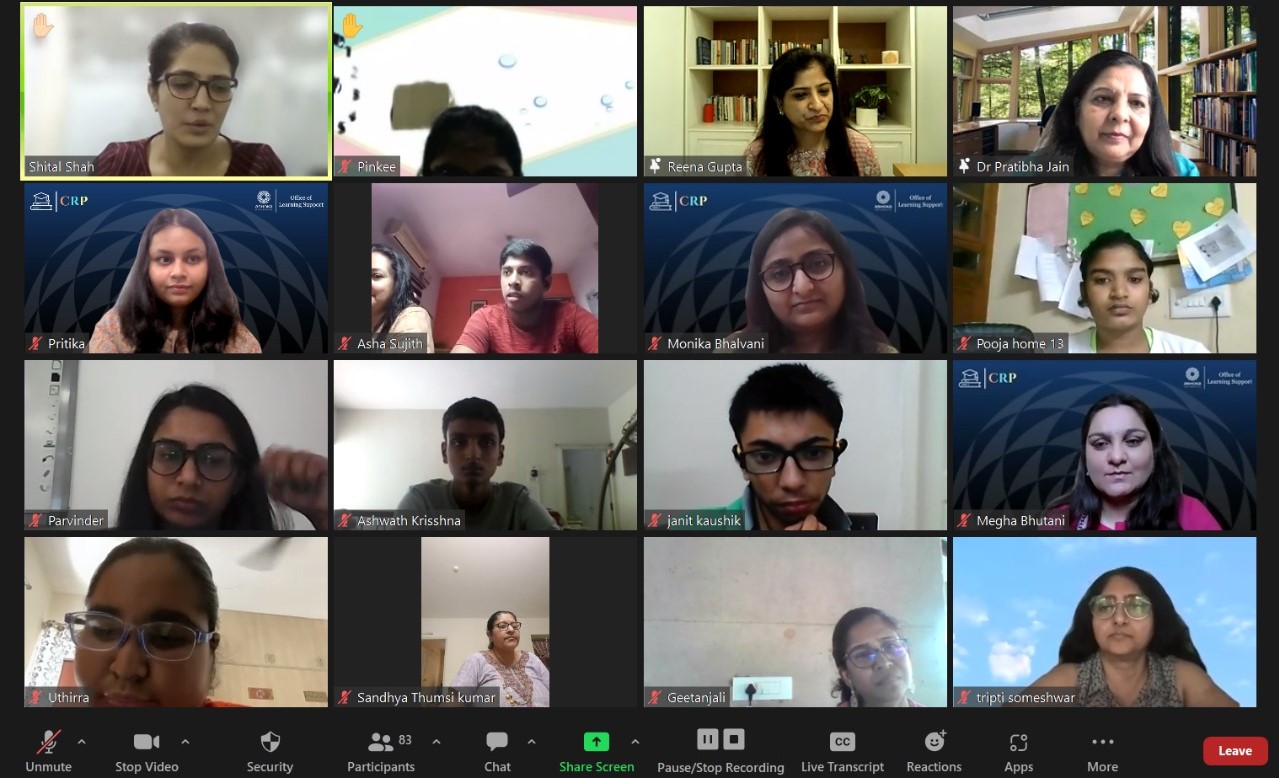Programmes
College Readiness Program
In November 2023, OLS successfully hosted the 5th edition of its flagship College Readiness Program, tailored for high school students with disabilities, parents, institutions, and professionals dedicated to supporting individuals with disabilities. Spanning three days, from November 24 to 26, 2023, this virtual learning series aimed to empower students with disabilities, providing them with crucial information to make informed decisions about higher education, fostering their aspirations, and ensuring their rightful inclusion in the higher education system.
Each day revolved around a specific theme, encompassing multiple strands within each theme. The program featured experts, students, and parents with experience in disability, accessibility, advocacy, and related topics. This edition further strengthened the community, now consisting of over 950 individuals from various parts of the country, representing a diverse range of disabilities impacted by the program.

All three days were filled with engaging and interactive sessions. Under the title “Guiding Your Future: Informed Choices for Higher Education and Career”, Day 1 focused on effective exam preparation, selecting the right college pathways, and exploring diverse career possibilities. The day commenced with a keynote address by Gopinath Ramakrishnan, Co-founder, and Managing Trustee of SCAN, followed by a session by Dr. Biswajeet Saha, Director of CBSE. Additional sessions provided insights into the application process, college support systems, the significance of disability inclusion in higher education, and the benefits of early career planning. (To access the Day 1 session recording, click here.)
Day 2 centered around the theme “Keys to College Success: Beyond Academic Abilities.” It featured a panel discussion with students with disabilities sharing their experiences and navigating challenges. The emphasis shifted to self-advocacy and the role of support systems in higher education, concluding with a panel discussion involving parents who guided their children through the system. The theme aimed to encourage introspection and the development of skills crucial for thriving in college. (To access the Day 2 session recording, click here.)
The final day highlighted the benefits of assistive technology in bridging the gap to disability inclusion and access. Two sessions specifically addressed the support available at Ashoka during and after the admission process, outlining facilities and processes. (To access the Day 3 session recording, click here.)
The three-day program concluded as a resounding success, a testament to the dedication of every speaker and participant. The program serves as a safe space for sharing knowledge, learnings, and resources related to college readiness for learners with disabilities.
The program has also enabled a community that learns and unlearns together, building a safe space to share knowledge and resources related to college readiness for learners with disabilities. It has evolved to become an impactful and community-driven initiative spearheaded by the OLS. Many new collaborative relationships have stemmed out of this flagship initiative, giving OLS the opportunity to go far and wide, beyond the Ashoka ecosystem to establish inclusion in higher education as the norm. This can be seen in the resulting ripple effect – the students, parents, and professionals who had participated in the previous editions are connecting with each other, starting their own initiatives, creating support groups, and sensitizing communities around them.
Attendee Testimonials
One really interesting part of the College Readiness Program was the last part, where students of Ashoka University itself were invited. They were talking about their own experiences and how, basically, they transitioned from school to college. I would say it was a great thing because many students who have different disabilities and different sets of
problems, they don’t know even if they are told that there are facilities for you to do things. But they don’t know how to avail them. But if they find a person or listen to a person who is similar to them or has similar disabilities or similar set of problems, they can relate and it motivates them to think, “If they can do it, I can too”.
-Student
Honestly speaking it was something I was always looking for, A platform where all the answers one was always searching for could get a went. World at large is unable to comprehend the issues and requirements of specially abled children. Students and speakers from various fields gave a great insight into many things. Overall, it was a wonderful program.
-Parent
Well-coordinated and comprehensive. Helpful checklists for awareness, advocacy, decision making. Lived experiences to learn from and be energised by.
-Professional
It was all very informative and useful. The insightful part was to the students speaking of their journey and how they navigated the system. It was also amazing to hear the parents.. and their fight for themselves and or their children. It brought to fore the importance of the very reason Ashoka chose to take this series – the need to create awareness and policies for easier transition for these children into adult learning and life.
-Professional
Wonderful insights and information shared by all – speakers, parents and professionals. Such platforms vigorously widen your knowledge and make you aware of so many things related to special needs. I too have a Special needs child and such interactions make you feel you are not alone!
-Parent and Professional
It was a well-planned program with a good mix of theoretical and practical knowledge, the topping on the cake was the third module, wherein, students with disability shared their experiences and the also parents of children with disability shared their journey. Listening to them makes it so much real and it no more looks like things are not possible.
-Professional
Peer Learning Support Programme (PLSP)
The Peer Learning Support Programme started out as an interactive platform based on a mentor-mentee framework, where senior-year students provide one-on-one assistance and guidance to junior-year students who are facing difficulties with navigating several aspects of their academic journey at Ashoka. Till now, the PLSP has had more than 100 students as volunteers to be mentors and guide their fellow Ashokans in having a more fulfilling university life. The PLSP also received the award “Creative and Entrepreneurial Initiative” from the Office of Student Affairs.
The PLSP continues to evolve and has now branched out into many opportunities for Ashoka students to volunteer or work with the Office of Learning Support with the larger goal of facilitating the inclusion and integration of students with diverse disabilities into the Ashoka ecosystem.
Messages from Mentees for their Mentors
Having you as my peer mentor this semester has been an absolute pleasure. I can’t thank you enough for always being so patient with me and for answering all my queries with eagerness. Your constant virtual presence has been reassuring, and something that proved to be absolutely necessary for getting my ship across the wild sea that my first semester at Ashoka was. Thank you for making things a little easier than they were for me.
-Mentee 1
Thank you for standing by and looking out for me throughout the entire semester. You were always there to listen to even the smallest of inconveniences without ever dismissing them. I can’t thank you enough for your guidance and I know I would never have survived my first months of uni without you. Thank you so, so much! I wish you all the best for what’s out there and I hope you receive just as much support as you’ve given out in everything that you do and so much more. I’ll be cheering you on!
-Mentee 2
I’m incredibly grateful for all of your help this semester. Just starting out at college, especially in an entirely online mode, was daunting and puzzling to say the least. However, your guidance and patient consideration made it so much better! Thank you so so much for your prompt responses to all my queries, your helpful suggestions, and most importantly, your kind support throughout the last few months! Genuinely thankful for all of your efforts and hope to see you on campus soon!
– Mentee 3








